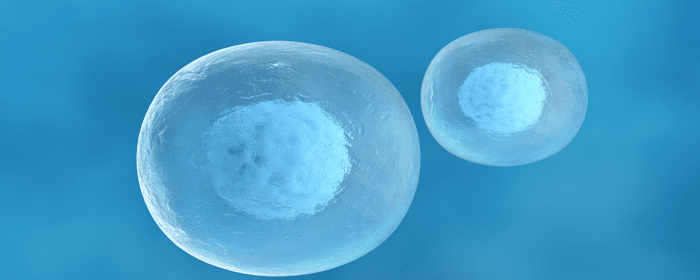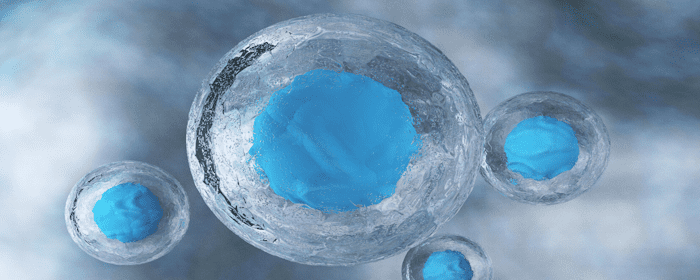
by admin | Jan 24, 2025 | Autoimmune, Mesenchymal Stem Cells, Stem Cell Research, Stem Cell Therapy
The onset of autoimmune diseases is related to unbalanced immune homeostasis and leads to the injury and failure of several organ specific tissues. Currently estimated to affect 8-10% of the population, these autoimmune diseases are associated with serious impairment, high mortality rate, and significant medical costs.
The discovery of stem cells, and specifically mesenchymal stem cells (MSCs), has created new opportunities for accelerating tissue regeneration. MSCs possess the ability to self-renew and differentiate into a wide range of cell types that fill a critical role in immunomodulation and regenerative therapy.
In this review, Jasim et al. share the latest research on the efficiency and feasibility of MSCs in the clinical treatment of several autoimmune disorders including rheumatoid arthritis, type 1 diabetes, multiple sclerosis, systemic lupus erythematosus, inflammatory bowel disease, liver disease, and Sjogren’s syndrome.
To date, most of these autoimmune disorders have been treated with a number of conventional drugs, including non-steroidal anti-inflammatory drugs. However, with many of these conditions, these drugs have been observed to contribute to liver injury, gastrointestinal injury, kidney side effects, BM suppression, and psychological disorders, making the development of new and safe therapeutic approaches an important issue. This has led to significant interest in exploring the potential benefits of MSC therapy in treating autoimmune diseases.
MSCs are easily collected from a variety of sources, including umbilical cord (UC), Wharton’s jelly (WJ), adipose tissue, bone marrow (BM), teeth and menstrual fluid. Research has demonstrated that MSCs regulate their local environment, cellular communications, and the release of several factors. MSCs are also able to migrate and differentiate into damaged tissue and can release growth factors, cytokines, and chemokines, which assists in improving tissue regeneration.
The research evaluated by the authors as part of this review, coupled with MSC’s high proliferation ability, multipotent differentiation capacity, anti-inflammatory and immunomodulatory properties, and regenerative potential, led to the conclusion that there was no remarkable association between mesenchymal stem cell therapy (MSCT) and tumor and infection with the treatment determined to be safe and feasible.
Jasim et al. also concluded that there is still a lack of understanding of the specific mechanisms through which the MSCT ameliorates these various autoimmune diseases that must be addressed as a way to enhance the future clinical use of MSCs.
Source: Jasim SA, Yumashev AV, Abdelbasset WK, et al. Shining the light on clinical application of mesenchymal stem cell therapy in autoimmune diseases. Stem Cell Res Ther. 2022;13(1):101. Published 2022 Mar 7. doi:10.1186/s13287-022-02782-7

by admin | Jan 17, 2025 | Chondrocyte, Mesenchymal Stem Cells, Osteoarthritis, Stem Cell Research, Stem Cell Therapy
Osteoarthritis (OA) continues to be the most common form of degenerative joint disease in the United States and around the world.
According to the World Health Organization (WHO), 528 million people worldwide were living with osteoarthritis (OA) in 2019, which is an increase of 113% since 1990. The Global Burden of Disease Study 2021 found that 595 million people had OA in 2020, which is 7.6% of the global population. The Centers for Disease Control and Prevention (CDC) estimates that over 32.5 million adults in the U.S. currently live with OA.
Despite the tremendous increase in the global incidence of OA, there are no effective pharmaceutical therapies that are able to restore the original structure and function of damaged articular cartilage.
Considering this, cell-based therapies for OA and other orthopedic disorders have become a primary area of current research and development.
In this review, Mobasheri et al. focus on the structure and function of articular cartilage, the pathogenesis of OA, and explore the challenges associated with cartilage repair and regeneration using cell-based therapies that utilize chondrocytes and mesenchymal stem cells (MSCs).
Articular cartilage (AC) has demonstrated a very poor ability to repair and regenerate. Being largely avascular and containing no blood vessels, AC lacks the blood flow required in the biological repair response process.
Overtime, and with age, cartilage loses its already limited capacity for repair and damaged cartilage is typically replaced by fibrocartilage-like scar tissue. With no successful surgical technique demonstrating success in stimulating AC repair and regeneration, autologous chondrocyte implantation (ACI) has emerged as one of the most widely used cell-based repair strategies for articular cartilage. Performed on over 12,000 patients worldwide, ACI has encouraged the growth of durable cartilage-like tissue and demonstrated the ability to significantly reduce pain in patients.
Recent studies have also demonstrated that the immunomodulatory properties of MSCs are able to be exploited for the treatment of many inflammatory and rheumatic conditions, including OA. Specifically, the ability of MSCs to migrate to the site of an injury, induce peripheral tolerance, and inhibit the release of pro-inflammatory cytokines has been observed to promote tissue repair and the survival of damaged cells.
Considering these advances, Mobasheri et al. report that tissue engineering with chondrocytes and MSCs is now considered to be a promising way of repairing articular cartilage lesions. While there is significant evidence of the potential of these cell-based therapeutic treatment options, the authors also point out fundamental weaknesses associated with the models available to date.
Included among these weaknesses is the fact that none of the engineered tissue currently available possess the normal zonal organization of chondrocytes observed in vitro and considered to be the prerequisite for normal cartilage function and for the success of any future clinical application.
While there are still weaknesses associated with tissue utilizing engineering and cell-based therapies to repair cartilage in OA and other orthopedic conditions that require further research, the authors conclude that these emerging therapeutic options hold tremendous promise for managing OA in the future.
Source: Ali Mobasheri, Gauthaman Kalamegam, Giuseppe Musumeci, Mark E. Batt,
Chondrocyte and mesenchymal stem cell-based therapies for cartilage repair in osteoarthritis and related orthopaedic conditions, Maturitas,Volume 78, Issue 3, 2014, Pages 188-198, ISSN 0378-5122.

by admin | Jan 10, 2025 | Mesenchymal Stem Cells, Orthopedic Injuries, Osteoarthritis, Regenerative Medicine, Stem Cell Research, Stem Cell Therapy
Osteoarthritis (OA) is a prevalent and disabling joint condition that imposes significant health and economic burdens globally. Between 2006 and 2016, the global percentage change in years lived with disability due to OA increased by 31.5%. Knee osteoarthritis (KOA) is the most common form, primarily affecting older adults and those who are obese. Symptoms of KOA include pain, swelling, stiffness, and decreased mobility. KOA’s development involves more than just mechanical wear and tear. It is influenced by genetic and environmental factors, leading to the breakdown of articular cartilage, inflammation, and changes in the underlying bone.
Pathogenesis of KOA
The deterioration in KOA is complex. It begins with mechanical stress and progresses through a cascade of biological processes. Key players in cartilage maintenance are chondrocytes and the extracellular matrix (ECM). Chondrocytes, although only 2% of cartilage volume, are crucial and respond to inflammatory signals that disrupt the balance between ECM production and degradation, limiting cartilage regeneration.
Traditional treatments for KOA are primarily focused on pain management and symptomatic relief, with limited success in regenerating damaged cartilage.
Emerging Cell-Based Therapies For KOA
Mesenchymal Stromal Cells (MSCs) and Exosomes
Recent advances in cell-based therapy for KOA involve mesenchymal stromal cells (MSCs) and their secreted exosomes. MSCs are multipotent cells found in various tissues, including bone marrow, adipose tissue, and synovial fluid. They have the ability to differentiate into multiple cell types, including chondrocytes, and secrete exosomes that carry bioactive molecules.
MSC Selection and Preparation
MSCs can be derived from different sources, including bone marrow, adipose tissue, and umbilical cord tissue. Each source has unique properties and benefits. For instance, bone marrow-derived MSCs (BM-MSCs) are commonly used due to their extensive research background, while adipose tissue-derived MSCs (AT-MSCs) also show promising results.
Exosomes, extracellular vesicles released by MSCs, play a vital role in cell communication. They transfer lipids, nucleic acids, and proteins that can modulate cell behavior and promote cartilage repair.
Mechanisms of MSC-Based Therapy
Effects on Chondrocytes
MSC therapy promotes chondrocyte health by increasing chondrogenesis, improving cell proliferation, reducing apoptosis, and maintaining autophagy. MSCs stimulate chondrocyte activity through growth factors, enhancing their ability to regenerate cartilage. Studies show that MSCs and their exosomes can improve chondrocyte proliferation and reduce apoptosis, helping maintain cartilage integrity.
Impact on the ECM
Regulating the ECM’s balance between synthesis and breakdown is crucial for treating KOA. MSCs influence this balance by modulating matrix metalloproteinases (MMPs) and their inhibitors, tissue inhibitors of MMPs (TIMPs). For example, BM-MSCs can adjust the ratio of MMP-13 to TIMP-1, improving cartilage matrix composition.
Influence on Inflammation
Inflammation is a significant factor in KOA. MSCs and their exosomes can reduce pro-inflammatory cytokines (e.g., IL-1β, TNF-α) and enhance anti-inflammatory responses. This reduction in inflammation helps alleviate cartilage damage and improve joint function.
Immunomodulation
MSCs can modulate immune responses by influencing macrophage polarization. They can shift macrophages from a pro-inflammatory (M1) to an anti-inflammatory (M2) state, which helps reduce inflammation and promote tissue repair.
Mitochondrial Function
MSCs can also enhance mitochondrial function in chondrocytes. Mitochondrial transfer from MSCs to chondrocytes improves their energy production and reduces oxidative stress, which is crucial for maintaining cell function and delaying the progression of OA.
Paracrine Effects
The paracrine effects of MSCs, particularly through exosomes, involve the transfer of molecular signals to nearby cells. This signaling can promote cartilage repair and modulate inflammation and cell survival.
Overcoming Obstacles and Refining MSC Therapies for Better Outcomes
While MSC-based therapies show promise, there is a lack of standardized protocols for cell selection and preparation. Additionally, the exact mechanisms through which MSCs and exosomes exert their effects are still being studied. Xiang et al. call for further research to establish standardized methods and fully understand how these therapies work.
External physical conditions, such as hypoxia and magnetic fields, can affect MSC behavior and cartilage regeneration. Hypoxic conditions have been shown to enhance chondrogenesis, while magnetic fields can boost MSC differentiation and cartilage repair. Understanding these effects can improve treatment strategies.
Promising Advances in Cell-Based Therapies for Osteoarthritis Management
Osteoarthritis, particularly knee osteoarthritis, represents a major challenge due to its complex pathogenesis and significant impact on quality of life. Traditional treatments offer limited solutions for cartilage regeneration. However, advances in cell-based therapies, including MSCs and their exosomes, provide promising alternatives. These therapies work through various mechanisms, including enhancing chondrocyte function, modulating inflammation, and improving ECM balance. The authors conclude that ongoing research and standardization efforts will be crucial in optimizing these treatments and addressing the unmet needs in osteoarthritis management.
Source: Xiang, XN., Zhu, SY., He, HC. et al. Mesenchymal stromal cell-based therapy for cartilage regeneration in knee osteoarthritis. Stem Cell Res Ther 13, 14 (2022). https://doi.org/10.1186/s13287-021-02689-9

by admin | Jan 3, 2025 | Adipose, Mesenchymal Stem Cells, Spinal Cord Injury, Stem Cell Research, Stem Cell Therapy
With over 290,000 people in the United States living with SCI and with roughly 17,000 new cases each year, spinal cord injury (SCI) is a serious condition that significantly impacts the lives of those affected.
Considering the complexity associated with SCI, current treatments for SCI continue to focus mainly on managing symptoms and providing physical rehabilitation. However, recently there has been growing interest in exploring the potential of regenerative medicine, particularly stem cell therapy, for treatment of SCI.
Bydon et al.’s Phase I clinical trial explored the safety of injecting autologous adipose-derived mesenchymal stem cells (AD-MSCs) into the spinal fluid of patients with traumatic spinal cord injury (SCI).
The study successfully manufactured and administered the stem cells to all patients without any serious adverse events (AEs). Although some non-serious AEs, including headache and musculoskeletal pain, were observed, none of the patients were excluded from the study as a result.
At the conclusion of this study, the authors found that several participants showed improvements in sensory and motor functions, as assessed by the American Spinal Injury Association (AIS) impairment scale.
Previous research has indicated that mesenchymal stem cells (MSCs) might aid in neurogenesis, angiogenesis, immune regulation, and neuronal plasticity. AD-MSCs, in particular, are advantageous due to their ability to regenerate nerves and blood vessels, their ease of extraction, and availability.
This study’s findings align with earlier studies, which also reported no serious AEs from intrathecal AD-MSC injections in SCI patients. Similar safety profiles were observed in studies involving other neurodegenerative diseases like amyotrophic lateral sclerosis (ALS) and multiple sclerosis.
Bydon et al.’s reported changes in MRI scans following the stem cell injections as part of this study. Previous studies have reported mixed conclusions on whether these changes are linked to neurological decline. Some suggest that these MRI findings could be due to inflammation from the stem cell treatment, potentially leading to nerve root compression. However, in this study, the authors found that these MRI changes did not correlate with neurological deterioration, indicating that they might be benign reactions.
While some patients showed improvements in their AIS grades, the authors caution that these findings should be carefully interpreted due to the limitations associated with this Phase I trial, including the lack of a control group.
Bydon et al. call for future larger-scale, randomized controlled trials to conclusively determine the benefits of AD-MSC injections. Additionally, they recommend expanding the study to include a broader range of cytokines and immunomodulatory markers to provide a deeper understanding of the stem cells’ mechanisms.
The authors conclude that this trial demonstrated the safety of intrathecal AD-MSC injections in SCI patients, with no serious AEs reported. Seven out of ten patients showed improvements in their AIS grades. These results encourage further research to evaluate the impact of AD-MSCs on neurological outcomes and to explore their potential in aiding late-stage recovery in SCI patients.
Source: Bydon M, Qu W, Moinuddin FM, Hunt CL, Garlanger KL, Reeves RK, Windebank AJ, Zhao KD, Jarrah R, Trammell BC, El Sammak S, Michalopoulos GD, Katsos K, Graepel SP, Seidel-Miller KL, Beck LA, Laughlin RS, Dietz AB. Intrathecal delivery of adipose-derived mesenchymal stem cells in traumatic spinal cord injury: Phase I trial. Nat Commun. 2024 Apr 1;15(1):2201. doi: 10.1038/s41467-024-46259-y. Erratum in: Nat Commun. 2024 Jun 5;15(1):4799. doi: 10.1038/s41467-024-48979-7. PMID: 38561341; PMCID: PMC10984970.

by admin | Dec 20, 2024 | Mesenchymal Stem Cells, Neurodegenerative Diseases, Regenerative Medicine, Stem Cell Research, Stem Cell Therapy
According to a recent study released by The Lancet Neurology, more than 3 billion people worldwide are living with a neurological condition, making it the leading cause of ill health and disability worldwide.
The rate of neurological conditions, including neurodevelopmental disorders (such as autism), neurodegenerative disorders (such as Alzheimer’s), movement disorders (such as Parkinson’s), brain injuries, neuroinfections, and multiple sclerosis, has increased by 18% since 1990 and now affects 1 out of every 3 people on the planet.
Currently, limited or no treatment options exist for these conditions. Cell-based therapies, and particularly those involving mesenchymal stem cells (MSCs) have been intensively studied as potential treatment options for neurological diseases.
As part of this review, Soares et al. share current knowledge of MSC-based therapies for neurological diseases and discuss the challenges associated with generating more efficient cell therapy products for these conditions.
According to the authors, the therapeutic potential of MSCs is attributed to their homing property, multilineage differentiation, and paracrine function. Specifically, MSCs are able to migrate toward injured tissues, engraft, and differentiate into functional cells. MSCs have also demonstrated the ability to repair, not replace, damaged cells and tissues.
MSCs contribute to the repair of cells and tissues through the paracrine action which demonstrates a wide range of immunomodulatory, angiogenic, antiapoptotic, and growth factors.
Soares et al. include a discussion of the most recent research regarding the safety, efficacy, and mechanism of action of MSC-based therapy in a number of neurological diseases, including amyotrophic lateral sclerosis, glaucoma, stroke, spinal cord injury, and autism. According to the authors, while most of the preclinical studies were conducted using animal models, both preclinical and clinical findings have demonstrated positive effects on safety, tolerability, and functional improvement after transplantation of MSCs
Considering the promising potential and identified limitations of using MSC-based therapies for the treatment of neurological disorders, Soares et al. conclude this review by calling for further study with the aim of developing better strategies to obtain larger quantities of healthy cells for use in cell therapies and to reduce the variability of results due to the biological characteristics of MSCs.
Source: Soares MBP, Gonçalves RGJ, Vasques JF, et al. Current Status of Mesenchymal Stem/Stromal Cells for Treatment of Neurological Diseases. Front Mol Neurosci. 2022;15:883378. Published 2022 Jun 16. doi:10.3389/fnmol.2022.883378






 St. Petersburg, Florida
St. Petersburg, Florida
